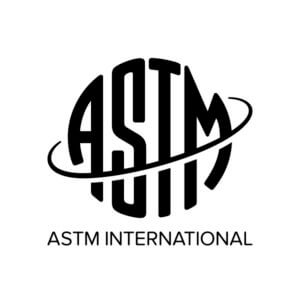What Are ASTM International Testing Standards?
ASTM International is an authority on developing industry-recognized standards used by manufacturing plants, quality departments, educational institutions and individuals worldwide. A standard is a detailed document containing guidelines and requirements to promote the quality, performance and safety of various materials and products, from paperboard and plastics to textiles and nonwovens. Specifically, a standard outlines a material’s characteristics and the testing methods required for conformity.
ASTM Standards List
Thwing-Albert supplies extensive equipment options configurable to meet various ASTM standards for testing the physical properties of materials. Our knowledgeable professionals have decades of combined experience helping clients determine the right testing machines to meet their specific testing needs for various standards including some common standards:
- ASTM F88: ASTM F88 is the standard defining the testing methods for measuring the seal strength of flexible barrier materials.
- ASTM E4: ASTM E4 outlines measurement procedures for force and compression and the calibration requirements for testing machines.
- ASTM B571: ASTM B571 describes adhesion testing requirements for evaluating metallic coatings.
- ASTM D295: ASTM D295 covers testing of varnished cotton fabrics used in electrical insulation.
- ASTM D374: ASTM D374 shows procedures for measuring the thickness of solid electrical insulation.
- ASTM D645: ASTM D645 defines standard testing methods for the thickness of paper and paperboard materials.
- ASTM D689: ASTM D689 covers the internal tearing resistance measurements of a single sheet of paper using the Elmendorf method.
- ASTM D751: ASTM D751 describes techniques for measuring the tensile properties of coated fabrics.
- ASTM D752: ASTM D752 outlines specific requirements for heavy-duty black polypropylene insulation for wires and cables.
- ASTM D790: ASTM D790 defines testing standards for the flexural properties of electrical insulating materials and reinforced and unreinforced plastics.
- ASTM D882: ASTM D882 covers standards for measuring the tensile properties of thin plastic sheeting.
- ASTM D1424: ASTM D1424 defines standards for measuring fabric tearing strength.
- ASTM D1709: ASTM D1709 describes testing procedures for measuring the impact resistance of plastic films using the free-falling dart method.
- ASTM D1777: ASTM D1777 outlines testing methods for measuring the thicknesses of textile materials.
- ASTM D1894: ASTM D1894 covers the requirements of determining kinetic and static coefficients of friction in plastic film and sheeting.
- ASTM D1876: ASTM D1876 involves testing standards for measuring the peel resistance of adhesives.
- ASTM D1922: ASTM D1922 explains testing standards for determining the tear resistance of thin sheeting and plastic films using the pendulum method.
- ASTM D2534: ASTM D2534 describes standards for determining the coefficient of kinetic friction for wax-based coatings.
- ASTM D2923: ASTM D2923 defines standards for measuring the rigidity of polyolefin films and sheeting.
- ASTM D3330: ASTM D3330 is the standard for measuring the peel adhesion of pressure-sensitive tapes.
- ASTM D3354: ASTM D3354 describes testing methods for determining the blocking load of plastics using the parallel plate method.
- ASTM D3420: ASTM D3420 covers requirements for measuring the pendulum impact resistance of plastic films.
- ASTM D3574: ASTM D3574 surrounds testing procedures for flexible cellular urethane foam.
- ASTM D4247: ASTM D4247 is used for testing general-purpose, black heavy-duty, and black extra-heavy-duty crosslinked polychloroprene jackets for wire and cable.
- ASTM D4361: ASTM D4361 defines testing the tack of printing inks using a three-roller tackmeter.
- ASTM D4521: ASTM D4521 explains the standards for testing the coefficient of static friction of corrugated paperboard and solid fiberboard.
- ASTM D4833: ASTM D4833 defines measurement testing for the index puncture resistance of geomembranes and similar materials.
- ASTM D4964: ASTM D4964 covers testing standards for measuring the elongation and tension of plastic fabrics.
- ASTM D5628: ASTM D5628 covers requirements for measuring the impact resistance of plastics using the falling dart method.
- ASTM D5734: ASTM D5734 describes standards for measuring nonwoven fabric tearing strength using falling-pendulum methods.
- ASTM D6195: ASTM D6195 surrounds testing pressure-sensitive adhesives for loop tack.
- ASTM D6241: ASTM D6241 discusses testing standards for measuring the static puncture strength of geotextile and related materials.
- ASTM D6548: ASTM D6548 defines mechanical penetration resistance testing requirements of sanitary tissue papers using the ball burst procedure.
- ASTM D6252: ASTM D6252 covers testing pressure-sensitive labels at 90-degree angles for peel adhesion.
- ASTM D6828-02: ASTM D6828-02 defines fabric stiffness testing standards using the blade/slot method.
- ASTM D6862: ASTM D6862 surrounds peel resistance testing methods at 90 degrees for adhesives.
- ASTM D6988: ASTM D6988 describes testing standards for plastic film thickness.
- ASTM D7269: ASTM D7269 covers testing the tensile properties of aramid yarns.
- ASTM F1306: ASTM F1306 defines testing for measuring the slow-rate penetration resistance of laminates and flexible barrier films.
Explore Thwing-Albert’s Testing Equipment for ASTM Standards
Thwing-Albert is a worldwide leader of advanced testing equipment, including instruments configured to meet various ASTM quality testing standards. Our experienced team can help determine which system is optimal for your operation’s testing requirements. Contact us today for a quote or additional technical information.











































